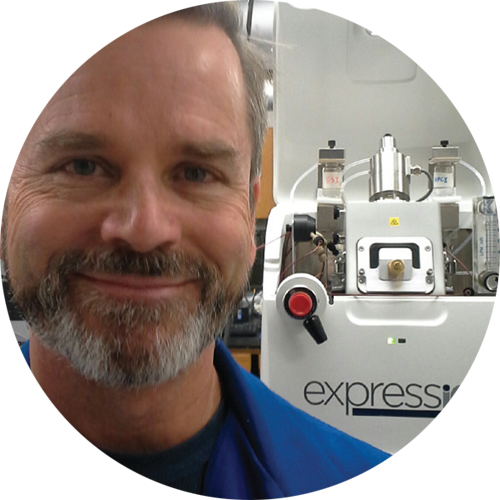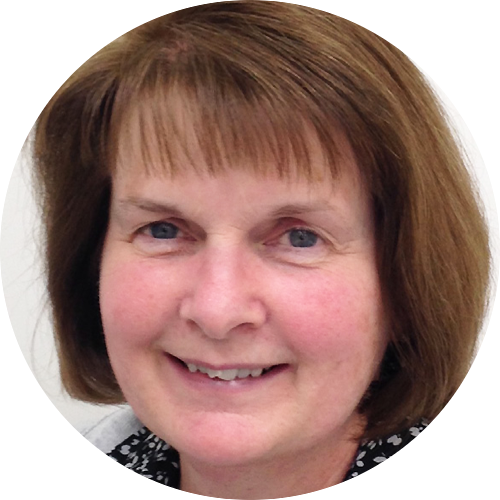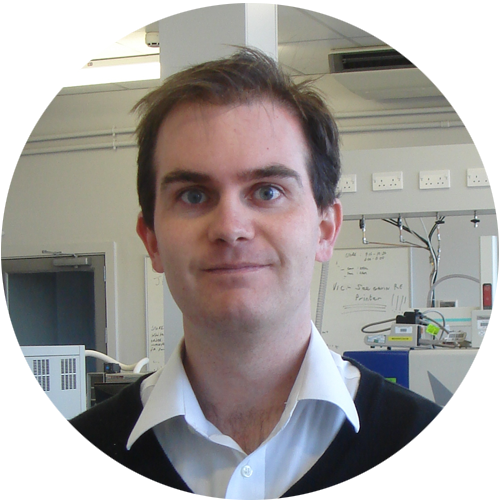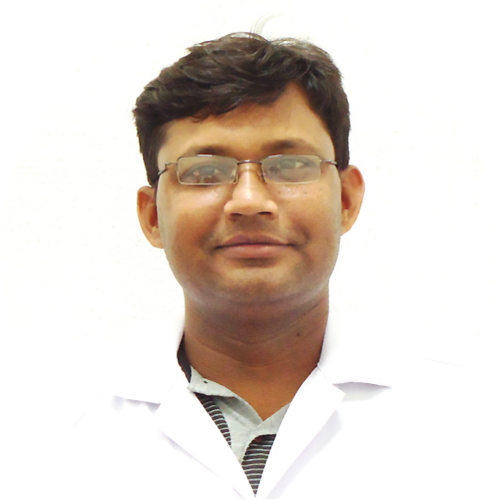The Liquid Extraction Surface Analysis (LESA) capability of the TriVersa NanoMate enables simple, direct nanoESI mass spectrometric analysis from a variety of surfaces.
The new LESAPLUS allows for automated LESA experiments plus additional nano-LC separation through the ChipSoftX operating software with Developers Kit. This enhancement is ideal for direct tissue analysis.

Q: WHAT IS THE FOCUS OF YOUR LAB’S RESEARCH?
A: Our exclusively undergraduate program in chemistry is fortunate to have a nice inventory of analytical instrumentation for use in various lab courses and student/faculty research. As the department’s analytical chemist, I coordinate the use of these instruments and the development of laboratory projects for use in our curricular labs. I also direct a group of undergraduate student assistants in research aimed at developing new devices and methodologies for microscale spectroelectrochemical measurements.
Q: WHAT WAS YOUR PREVIOUS WORK FLOW OR CHALLENGES?
A: Our department’s mass spectrometry instrumentation (two GCMS systems and an ambient pressure gas analyzer) was limited to EI ionization of gaseous and volatile liquid samples until we purchased the Advion CMS.
Q: WHY DID YOU INCORPORATE THE EXPRESSION CMS INTO YOUR LABORATORY?
A: Our faculty agreed the need existed to incorporate additional MS capabilities to our instrumentation holdings for both our undergraduate lab curriculum and several of our faculty members’ research efforts. The Advion CMS was an ideal choice with regard to cost, portability and flexibility. In particular, the ASAP probe available for APCI mode was an attractive feature supporting our development of lab projects with forensic and pharmaceutical emphasis.
Q: WHO WOULD YOU RECOMMEND TO PURCHASE THE EXPRESSION CMS?
A: I think the Advion system is well suited for a variety of undergraduate curricular and research lab applications.
Q: DO YOU HAVE ANY PUBLICATIONS OR PRESENTATIONS USING THE EXPRESSION CMS?
A: None to report yet, but I’m optimistic – at present, a student in my instrumental analysis course is satisfying her independent project requirement by working with the ASAP probe to develop a simple internal standard approach to permit quantitation of components in pharmaceutical preparations.

Q: WHAT IS THE FOCUS OF YOUR LAB’S RESEARCH?
A: The Liverpool School of Tropical Medicine (LSTM) is dedicated to research and teaching on tropical diseases. We are helping improve the health of some of the poorest people in the world by carrying out scientific research and developing treatments that will directly benefit them.
Specifically, I work in the department of parasitology, where our focus is on the key tropical parasites such as malaria, TB and filarial worms.
Q: WHY DID YOU INCORPORATE THE EXPRESSION CMS INTO YOUR LABORATORY?
A: The expression was originally purchased to save us from a 15-minute walk to get simple MS data at the University’s main analytical service. Also, it is compact and very easy to use, you do not need to be an expert in MS to generate very useful and meaningful data.
Q: HOW DO YOU USE THE EXPRESSION CMS?
A: We use the expression in the direct injection configuration for checking whether reactions have worked and whether the next purification and/or reaction steps are worth proceeding.
Before we got the expression, we either had to walk across campus to use the central service or continue without any knowledge as to whether our reactions had worked. The expression saves us time and boosts our overall research performance.
I am also planning to use it for some simple metabolism studies in the near future.

Q: WHAT IS THE FOCUS OF YOUR LAB’S RESEARCH?
A: As part of the Archibald research group our main research area is developing radiopharmaceutical compounds for medical imaging and targeted protein binding molecules for therapeutic applications.
Specifically, I am working on synthesising radiotracers to target the CXCR4 chemokine receptor which has been shown to be overexpressed in 23 different types of cancer.
Q: WHY DID YOU INCORPORATE THE EXPRESSION CMS INTO YOUR LABORATORY?
A: The expression CMS was purchased as we are a large research group and it is more cost and time effective to be able to carry out rapid MS analysis in situ for some sample and to use the University’s analytical service only for more complex analyses that are less time sensitive. The expression CMS fits nicely onto the bench top, performs all the functions needed for general day to day use, and is easy to use and maintain.
Q: HOW DO YOU USE THE EXPRESSION CMS?
A: We use the expression CMS to monitor chemical reactions, check for by-products and gauge the purity of our products. We have the TLC-MS interface which is extremely useful in identifying compounds straight from the TLC plate. Personally, I have used the expression CMS to examine fractions from a column to identify exactly when my product was being eluted, which would not have been possible previously. Purchasing the expression CMS has undoubtedly saved our group a great deal of time and has helped advance our research.

Q: WHAT IS THE FOCUS OF YOUR LAB’S RESEARCH?
A: The Drug Discovery Unit (DDU), based at the University of Dundee, is an independent, fully integrated Drug Discovery Group that works across multiple disease areas. We are active in areas of unmet medical need and bridge the gap between academic research and industrial drug discovery. Our staff are multi-disciplinary and come from both Academic and Industrial backgrounds.
Q: WHY DID YOU INCORPORATE THE EXPRESSION CMS INTO YOUR LABORATORY?
A: We needed a mass spectrometer that was easy to install, operate and move as well as available at a reasonable price. We have had the instrument for over a year now and are very happy with it.
Q: HOW DO YOU USE THE EXPRESSION CMS?
A: We have the expression linked to an HPLC instrument and it is used as an open access system. The combination of UV purity data along with MS confirmation is incredibly powerful for our chemists. The instrument is networked so our chemists can then process and review data from their desks.
Q: WHAT IS THE FOCUS OF YOUR LAB’S RESEARCH?
A: At SynZeal Research Pvt Ltd, with state of the art synthesis laboratory, we are focused on custom synthesis of high purity secondary reference standards of API Impurities and metabolites. SynZeal also provides chemistry research services and products to synergize the drug discovery and development.
Q: WHAT PREVIOUS WORKFLOW CHALLENGES DID YOU EXPERIENCE?
A: The major challenge to our workflow is to have fast decision on success or failure of targeted chemical transformation to decide further course of action and to complete the projects on time.
Q: WHY DID YOU INCORPORATE THE EXPRESSION CMS INTO YOUR LABORATORY?
A: We selected expression CMS as one of the affordable alternative for Mass Spectroscopy which can be operated even by an inexperienced person in mass spectrometry. Our productivity was increased many fold after installation of this system.
Natural products, the underlying active components and their use in traditional medicine are of increased interest in the field of pharmaceutical research. The naturally occurring active ingredients are ideal chemical starting structures to improve upon in the pharmaceutical drug development process and consequently half of all currently approved drugs in the US are based on natural products. It is therefore not surprising that natural product analysis is a field of major interest world wide. Here, we present a simple example of the added benefits of mass spectrometry in typical natural product analysis workflows based on an alcoholic extract of nutmeg.
The expression compact mass spectrometer (CMS) is a novel high performance, easy-to-use single quadrupole mass spectrometer with enhanced scan speed and the ability for on-line polarity switching and in-source fragmentation.
With decades of mass spectrometry and chemistry expertise, Advion Interchim Scientific has produced a family of compact mass spectrometers designed for the chemist. The affordability, small size and ease of use make them ideal for use directly at the chemist’s bench, giving immediate answers and informed decisions instead of waiting.
The Advion Interchim Scientific expression® compact mass spectrometer (CMS) is a fast and easy analytical tool for the organic chemist. Ideal for fast reaction monitoring, the expression® CMS features a single quadrupole that can adapt to multiple ionization sources in seconds, including both ESI and APCI. The mass spectrometer works in a variety of applications, including food and beverage, pharmaceutical, biomedical, peptides and proteins, drug discovery and more. The expression® CMS offers a variety of novel sampling techniques, including:
- Direct mass analysis of TLC plates in 30 seconds at the push of a button with Plate Express™
- One-touch analysis of solids and liquid samples with the ASAP® probe
- LC/CMS
- Many more options and configurations to suit your needs
Learn more about the different sample techniques available with the expression® CMS, including fast assay methods for liquids, solids, gases, and even air-sensitive compounds.
Fill out the form to download the full expression® CMS brochure now.

Q: WHAT IS THE FOCUS OF YOUR LAB’S RESEARCH?
A: My group specializes in developing new methods for pharmaceutical, metabolomic and security applications. In particular, this has involved the analysis of volatiles, either by direct analysis of breath, or through using thermal desorption to extract volatiles from solid or liquid matrices.
Q: WHAT WAS YOUR PREVIOUS WORK FLOW OR CHALLENGES?
A: Previously, we used a quadrupole time-of-flight instrument for volatile analysis. These instruments are not really designed with the analysis of small volatiles in mind and required preconcentration for breath analysis.
Q: WHY DID YOU INCORPORATE THE EXPRESSION CMS INTO YOUR LABORATORY?
A: The expression CMS offers excellent performance in the low m/z range and proved highly sensitive for determining volatile species in breath, requiring no preconcentration. Secondly, the instrument is transportable and can be deployed at the site of sampling giving high sample throughput and real-time measurements.
Q: WHO WOULD YOU RECOMMEND TO PURCHASE THE EXPRESSION CMS?
A: Anyone interested in volatile analysis would find the CMS an excellent instrument for targeted analysis.
Q: What is the focus of your lab’s research?
A: Reach Separations is a contract research organization that services chemical, agricultural, pharmaceutical and academic clients.
Capability developed around expertise in separation science, specifically purification/prep.
Q: What previous workflow challenges did you experience?
A: Needed a tool to confirm quality of material (in and out).
Q: Why did you incorporate the expression CMS into your laboratory?
A: We selected the expression CMS for several reasons; proper MS Detector at an attractive price as well as its compact size because our lab space is limited. Advion’s technical support and service is exceptional. Easy to integrate with our wide range of equipment. Vendor relationship that is two way, Advion listens to our needs and ideas.
Q: Who Would you Recommend to purchase the expression CMS?
A: Anyone who needs a reliable mass spectrometer upgrade/addition for existing equipment.







